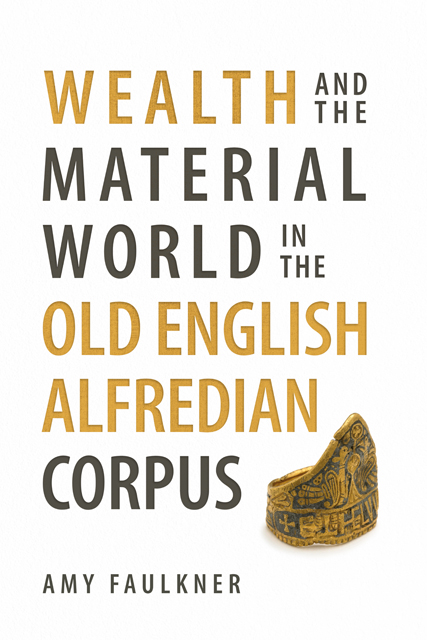Book contents
- Frontmatter
- Dedication
- Contents
- Illustrations
- Acknowledgements
- Abbreviations
- Introduction
- l Books and Ladders: The Speaking Prefaces
- 2 The Stream of Wealth: The Old English Pastoral Care
- 3 True Riches: The Old English Boethius
- 4 The Familiar and the Strange: The Old English Soliloquies
- 5 Treasure in Heaven: The Prose Psalms
- Conclusion: Transformations in Prose and Poetry
- Bibliography
- Index
- ANGLO-SAXON STUDIES
4 - The Familiar and the Strange: The Old English Soliloquies
Published online by Cambridge University Press: 14 June 2023
- Frontmatter
- Dedication
- Contents
- Illustrations
- Acknowledgements
- Abbreviations
- Introduction
- l Books and Ladders: The Speaking Prefaces
- 2 The Stream of Wealth: The Old English Pastoral Care
- 3 True Riches: The Old English Boethius
- 4 The Familiar and the Strange: The Old English Soliloquies
- 5 Treasure in Heaven: The Prose Psalms
- Conclusion: Transformations in Prose and Poetry
- Bibliography
- Index
- ANGLO-SAXON STUDIES
Summary
The Old English Soliloquies, a loose translation of Augustine's early dialogue the Soliloquia, is well-known for the many metaphors and images which are drawn from the realm of everyday experience and the material world. These metaphors tend to be characterised by their aristocratic, courtly setting: they assume that the reader is familiar with a society governed by benevolent kings and lords who generously distribute wealth to their grateful dependents. The gradual accumulation of these metaphors validates this sort of community, bound together by friendship and wealth, as the ideal society. Wealth is a central aspect of this society, but, as elsewhere in the literature associated with Alfred, the Soliloquies promotes wealth that is managed well for the good of the community, rather than the excessive wealth of a greedy individual. This careful management of the currents of wealth can be compared to the role of wealth in heroic poetry such as Beowulf, where wealth flows down the bloodline and along the social bonds made by gift-giving, and humans can only consider themselves lucky, or eadig (‘blessed, wealthy’), enough to have some contact with that bright gold before their own life comes to an end. Unlike in Beowulf, however, in the Soliloquies these currents of gift-giving are metaphors for the streams of exchange which flow between God and man.
As much as the Old English translator of the Soliloquies values the earthly life and its necessary material goods, wisdom is nonetheless the ultimate goal, in this life and the next; indeed, while the Latin text is most concerned to prove the immortality of the soul, the Old English seems as focussed on, if not more so, the immortality of the individual's own personal wisdom. Looking again to Old English verse, the accumulation of personal wisdom can be seen to parallel the impulse to accrue material wealth that we find in some vernacular poetry. In the Soliloquies, material wealth is not presented as an impediment to the pursuit of wisdom, but rather a part of the ideal earthly life that enables the pursuit of wisdom in this world. This chapter will show that the translator presents the earthly life and its material resources as an important – even enjoyable – preparation for the next life, rather than something that must simply be used to attain that higher goal.
- Type
- Chapter
- Information
- Publisher: Boydell & BrewerPrint publication year: 2023

